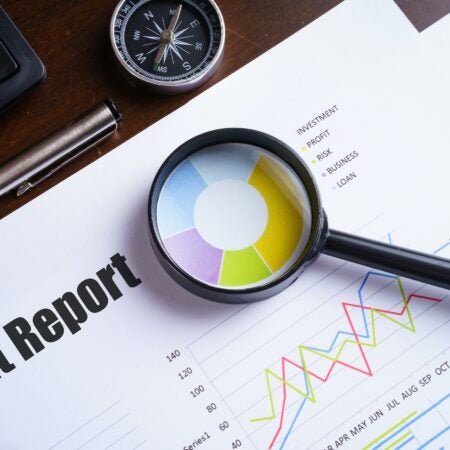
Americans may know exactly how important it is for them to keep up a good credit score over the course of their borrowing history, as doing so will provide the advantage of easier access to affordable credit through lower rates and fewer fees. But what many people don’t know is that not all credit scores are created equal, even for the same person at the same time.
When consumers order copies of their credit reports from each of the three major credit reporting bureaus — Experian, Equifax and TransUnion — they might be surprised to learn that these can actually vary widely in some cases. There are a number of reasons for this, but the biggest is that in some cases, one credit bureau might have received different information than the other two from a creditor. However, the other issues that can lead to this discrepancy are important to keep in mind as well.
How can one credit rating be so different from the others?
The simple fact of the matter is that the world of credit reporting isn’t always perfect. In some cases, a creditor may incorrectly report an account for the wrong person to one of these companies — often the result of a transposed number or other sort of typographical error — or may report an account’s existence correctly, but have the amount wrong, typically for reasons that are fairly similar. These can lead to massive differences between the credit scores issued by two of the bureaus, and one more. On the other hand, in some instances, all three might be different in this way as a result of other reporting issues.
However, it’s important to note that a person’s three credit scores will all likely be slightly different from each other even when no such mistaken entries exist on their credit reports at all. This is because the way in which FICO, the company that pioneered credit scoring, developed its ratings for Experian, Equifax and TransUnion was different for each, and tailored to their specifications. So for instance, the same credit card account with a $4,000 balance might be counted slightly differently by Experian than it is by TransUnion, and so on. These changes are typically relatively minute, though. For example, though the way these factors are calculated, for all accounts listed in a person’s name, will vary, all the changes will usually lead to credit scoring differences of a few points here and there.
Those differences, in and of themselves, likely won’t affect a person’s ability to obtain credit they may want or the terms they receive on those accounts, because of just how small the differences will likely be, but it is important for consumers to note that there will be at least some difference in ratings as a consequence of these varying scoring methods.
Other potential reasons for the credit scoring differences
Of course, it’s not just reporting errors and variations in scoring metrics that can lead to these discrepancies. In some cases, lenders might not report a balance to all three credit bureaus at the same time, leading one or two to have the most current information while the others lag a little behind by a few weeks or more. In other instances, consumers might have applied for credit under different names. A woman who had credit cards in her maiden name prior to getting married, who then changed her name when she got married, might not see a full carry-over of her individual accounts right away. In other cases, someone whose name is Jeffrey, for example, might have also applied for credit under the name Jeff, and this too can lead to some discrepancies.
It is for these reasons that it’s important for consumers to keep close tabs on their credit reports with regularity. Federal law allows them to order a copy of their credit report from each of the three major credit bureaus once per year, absolutely free of charge. This allows them to have a better handle on their finances and increases the likelihood that they can spot any unfair markings which may exist on one such document, but not all three. This is usually important because credit scores are based upon the information listed on a credit report, and any such entries can consequently have a potentially severe negative impact on their standings going forward.
If any of these unfair entries are discovered, consumers might find it helpful to work with a credit repair company to alleviate the issues. This is because these companies may be in a better position to deal with the problems and have them sorted out more expeditiously than borrowers could on their own. That, in turn, allows those people to get their standings back to where they deserve to be.






